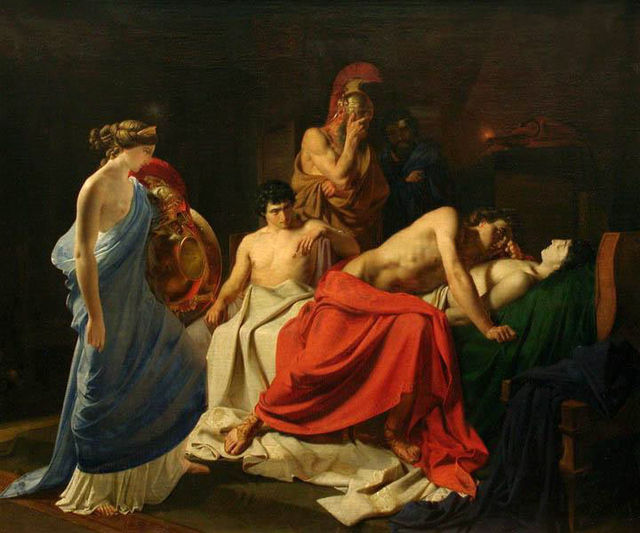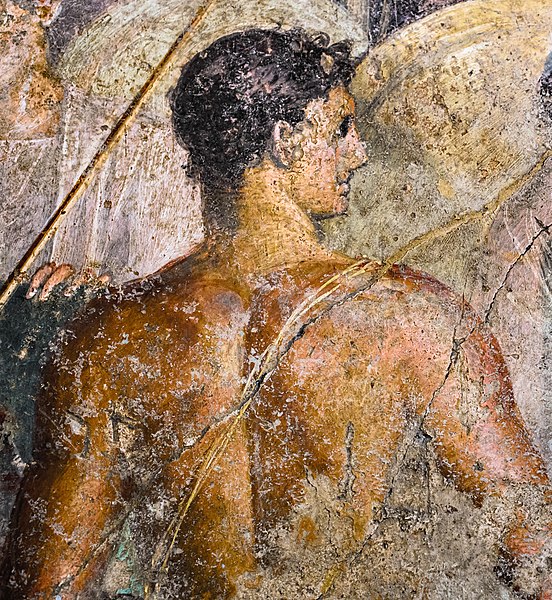The relationship between Achilles and Patroclus is a key element of the stories associated with the Trojan War. In the Iliad, Homer describes a deep and meaningful relationship between Achilles and Patroclus, where Achilles is tender toward Patroclus, but callous and arrogant toward others. Its exact nature—whether homosexual, a non-sexual deep friendship, or something else entirely—has been a subject of dispute in both the Classical period and modern times. Homer never explicitly casts the two as lovers, but they were depicted as lovers in the archaic and classical periods of Greek literature, particularly in the works of Aeschylus, Aeschines and Plato.
Achilles bandages the arm of Patroclus
Achilles mourning Patrocles, John Flaxman, 1795.
Achilles Lamenting the Death of Patroclus (1855) by the Russian realist Nikolai Ge
In Greek mythology, Patroclus was a Greek hero of the Trojan War and an important character in Homer's Iliad. Born in Opus, Patroclus was the son of the Argonaut Menoetius. When he was a child, he was exiled from his hometown and was adopted by Peleus, king of Phthia. There, he was raised alongside Peleus' son, Achilles, of whom he was a childhood friend and close wartime companion. When the tide of the war turned against the Achaeans, Patroclus, disguised as Achilles and defying his orders to retreat in time, led the Myrmidons in battle against the Trojans and was eventually killed by the Trojan prince, Hector. Enraged by Patroclus' death, Achilles ended his refusal to fight, resulting in significant Greek victories.
Patroclus on an antique fresco from the House of the Tragic Poet in Pompeii, 1st century AD (Naples National Archaeological Museum)
A fresco in Pompeii depicting Achilles seated between Briseis and Patroclus in the marquee
A cup depicting Achilles bandaging Patroclus' arm, by the Sosias Painter.
Menelaus and Meriones lift the body of Patroclus while Odysseus and others look on (Etruscan relief, 2nd century BC)






